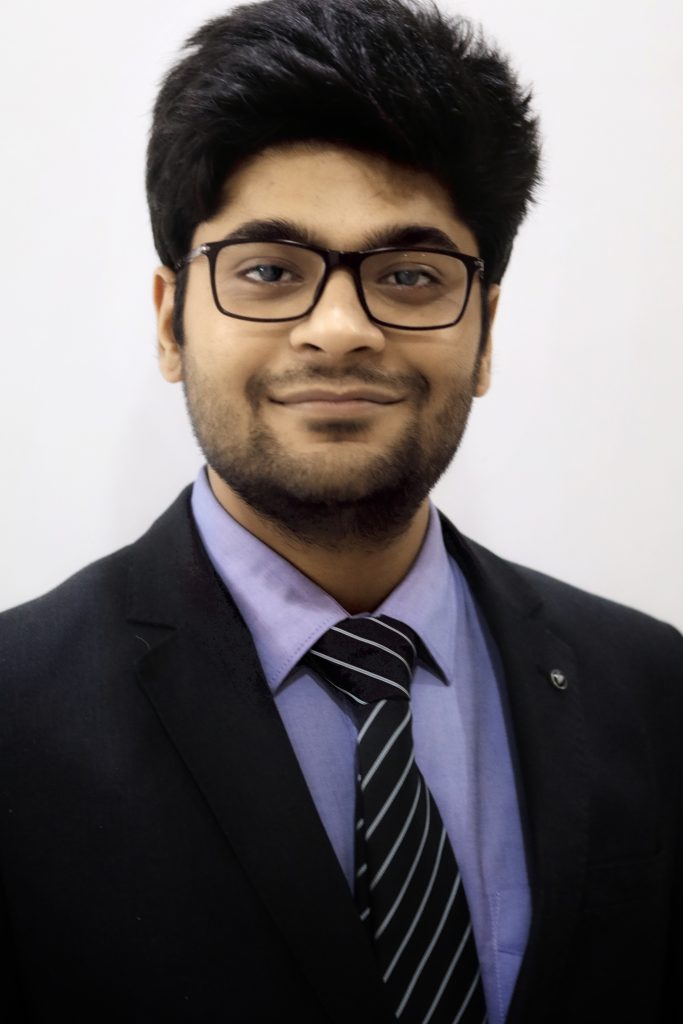This Interview has been published by Pragya Chandni and and The SuperLawyer Team

Could you please walk us through how you initially decided to pursue a career in law, and what motivated you to specialize in Intellectual Property (IP) Litigation?
As a first-generation lawyer, I leaned heavily on mentors to guide my path. Initially, my academic inclination was towards science during my 11th and 12th standards. However, an unexpected meeting with a seasoned lawyer (who turned out to be my first mentor in the field) at a family gathering shifted my perspective. He illuminated me on the vast horizons and multifaceted opportunities that were offered by the legal profession (beyond its cliché portrayal in popular media).
While law school introduced me to a plethora of intriguing subjects, it was Intellectual Property (IP) that resonated the most with me. A defining moment came during an internship when a senior partner posed a thought-provoking question: “Why specialize in IP?” My response: “If it is not new or novel, it is not IP and if something is new or novel on every turn, it is always interesting and worth specializing in”.
Further fuelling my interest were dedicated professors, particularly in IP and CPC, who recognized and nurtured my enthusiasm. Their encouragement and insights solidified my decision to specialize in IP Litigation.
Your career has taken you through notable firms like Remfry & Sagar, Khurana & Khurana, and now Shardul Amarchand Mangaldas. Could you share the pivotal moments and experiences that shaped your journey in the field of IP law?
Every step in my career, from drafting my first legal notice to my first court appearance, has been a significant learning opportunity. One particularly memorable matter involved a client alerting us about an imminent shipment of counterfeit goods destined for India within just two days. The urgency of the situation warranted immediate actions: identifying the shipment, liaising with Indian Customs offices, and swiftly filing a lawsuit seeking injunctive relief in Court. Those intense 48 hours, while challenging, imparted invaluable lessons in handling time-sensitive IP matters.
Working at a full-service law firm like Shardul Amarchand Mangaldas has further enriched my professional journey by providing me an opportunity to work and interact with experts from diverse legal domains. This experience has further honed my ability to perceive and cater to client’s expectations from a holistic standpoint.
Having handled diverse aspects of IP, from drafting pleadings to appearing before various courts and tribunals, what aspects of your work do you find most challenging and rewarding in the realm of IP litigation?
Legal profession is a continuous journey filled with multiple learning opportunities. Reflecting on my early internship days, I recall discovering quicker methods to navigate court files during time-sensitive situations. Drafting intricate pleadings in complex cases was initially daunting during my early professional years. I vividly remember the apprehension of my first solo court appearance; the nerves were palpable. However, with each challenge encountered, I recognized them as important learning milestones that made me the lawyer I am.
In the realm of litigation, the most rewarding moment is undoubtedly when a favourable order is pronounced. All the hard work and preparation culminating in a successful result is profoundly gratifying.
Your profile mentions engagement in business development activities, including client meetings and conferences. How do these activities contribute to your professional growth, and what role do they play in enhancing your practice in IP litigation?
Engaging directly with clients through meetings and conferences is fundamental in any client-centric profession. It’s essential to grasp the intricacies of a client’s business, their specific needs and to accordingly offer tailored solutions. Through these interactions, one can gain deeper insights into the challenges clients face, especially in IP disputes.
For example, while some clients might prefer a more diplomatic approach to resolve IP disputes through legal notices or mediations, others might seek immediate legal action to safeguard their IP, perhaps on account of the potential impact on their business. By actively participating in such engagements, one can better align their strategies and advisory to suit the unique requirements and preferences of each client, ensuring a more effective and personalized approach to IP disputes.
You’ve conducted training sessions for clients on IP laws. Could you elaborate on the importance of client education in the field of IP and share any specific challenges you’ve encountered in helping clients navigate intellectual property issues?
Often, the primary focus of clients is on business growth and revenue generation, sometimes overlooking the critical aspects of IP protection. For instance, we have often seen clients approach us to enforce their design registration, only to later discover that they’ve been using the design for years prior to filing the design application. In such cases, we have to inform them that their design registration might be vulnerable for cancellation due to prior self-disclosure. In these situations, design registration certificates may be nothing more than a toothless paper.
This underscores the vital role of client education. By proactively educating clients about the nuances of IP and the associated timelines, one can prevent potential pitfalls. It’s essential for businesses to recognize that robust IP protection is integral to their long-term success.
You’ve appeared before various specialized tribunals and high courts in India. How does your approach differ when dealing with IP matters in these forums compared to more traditional court settings, and what skills do you consider crucial for success in such specialized areas?
In specialized IP forums, there’s a heightened awareness and appreciation for the technicalities revolving around the field of IP, which often results in more streamlined communication and understanding of complex issues. This environment is conducive for IP practitioners, making it important for them to remain updated with the latest developments in the IP landscape. Unlike traditional court settings, specialized forums demand a deep understanding and familiarity with both domestic and international IP trends. Therefore, staying abreast of advancements in IP not only enhances an IP lawyer’s credibility but also equips them to leverage the unique opportunities presented by these specialized forums.
Your academic achievements include gold medals, debate/moot wins, and publications. How has your academic background contributed to your success in the legal profession, particularly in the specialized field of IP law?
During my time in law school, every academic experience was crucial for learning skills that are requisite for becoming a successful lawyer. Participating in debates and challenging moot court sessions didn’t just help me in honing my oratory skills but also taught me how to work in a team. On the other hand, writing research papers on interesting IP topics deepened my understanding of the subject at a jurisprudential level.
While I didn’t realise it then, each activity wasn’t just an academic exercise or an assignment, it was a step towards understanding the legal world that was awaiting after 5 years of law school.
Drawing from your experiences, what advice would you like to share with law graduates who are just beginning their careers, especially those interested in pursuing a specialization in IP law? Are there any lessons or insights you wish you had known when you started your journey?
Of late, IP practice has become more lucrative and is attracting numerous law graduates to specialize in this domain. While the rewards of this practice are undeniable, I believe it is important for law students and young professionals to determine if the subject truly resonates with them. Engaging in IP internships or dedicating time to study and write about IP can offer some clarity in this regard.
Reflecting on my early days in the IP practice, I recall focusing all my energy in understanding the developments in and around the field of IP. While this approach enhanced my understanding of the subject, I inadvertently overlooked developments in fields outside of IP. Over time, I realized the value of maintaining a balanced perspective, acknowledging that while specialization requires depth, a holistic understanding of law across domains is invaluable.
Get in touch with Dhruv Grover-
























